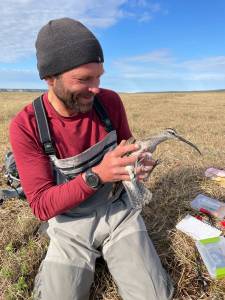Legislators responsible for their conduct and their votes
Published 11:52 pm Thursday, April 23, 2015
There was at least a kernel of truth in the Legislature’s debate over Robert Ruffner’s nomination to the Board of Fisheries.
While he couched it in terms of maintaining a balance on the board, Sen. Bill Stoltze made it clear in his comments during the Legislature’s joint session last Sunday that he expects any nominee to that seat to be beholden to sport fishing interests. He went on to characterize Ruffner’s nomination as an attack on Southcentral and personal-use fishermen — nevermind that Ruffner has been a longtime resident of the region and has described himself on the record as an avid personal-use fishery participant.
According to Alaska statute, “The governor shall appoint each member on the basis of interest in public affairs, good judgment, knowledge, and ability in the field of action of the board, and with a view to providing diversity of interest and points of view in the membership.”
It would seem that demanding fish board nominees fall into one category or another — pro-commercial or pro-sport — does nothing to provide for a diversity of interest and points of view. For legislators to willfully ignore the legal criteria for board members demonstrates ignorance, corruption, or both.
During the confirmation debate, Sen. Peter Micciche of Soldotna urged his colleagues not to let special interests dictate their votes on the matter. The senator’s words fell on 30 pairs of deaf ears.
A great deal of attention is being drawn to various advocacy groups, including the Kenai River Sportfishing Association, and their push to keep Ruffner off the board. Several members of the Kenai Peninsula Borough Assembly expressed their disappointment during Tuesday’s meeting, as have many other members of the Kenai Peninsula community from a wide range of fishery stakeholder groups.
Ultimately, it is the individual members of the Legislature who are responsible for their conduct and their vote. Lawmakers are responsible for knowing who or what they are voting for, and what those votes mean.
For the record, the Kenai Peninsula’s legislative contingent — Sens. Micciche and Gary Stevens, and Reps. Mike Chenault, Kurt Olson and Paul Seaton — all voted in favor of Ruffner’s confirmation.
In this space on many occasions over the past few years, we have been critical of fish board actions that have limited access to and the ability to participate in the process for Kenai Peninsula residents. Apparently, the board has learned from watching the Legislature.
The Board of Fisheries needs to start serving Alaskans again, to represent a diversity of interests and points of view. But if legislators won’t do their due diligence, if elected representatives are willing to base their votes on rumor and innuendo, there is little hope for change anytime soon.




